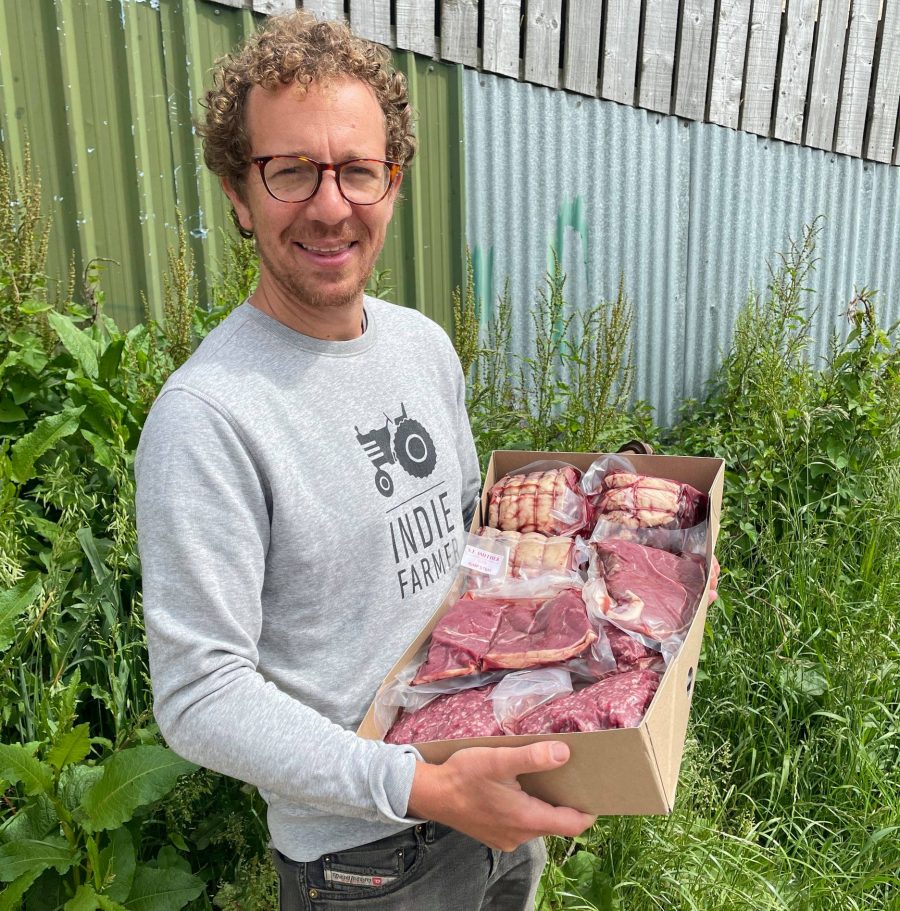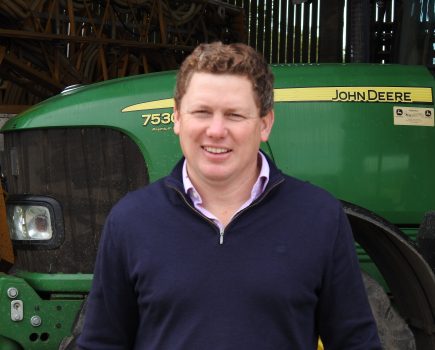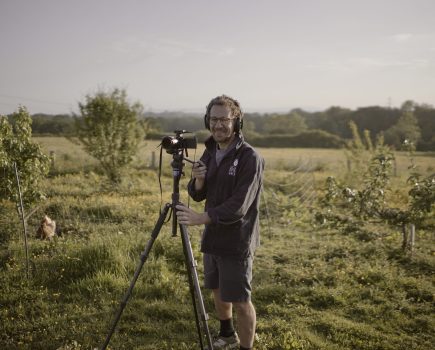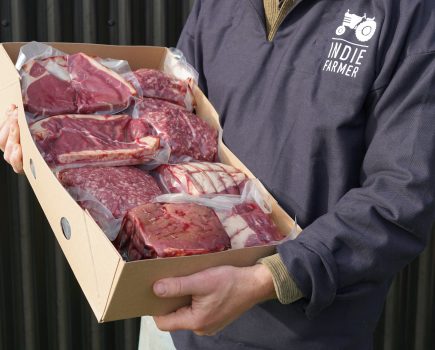Top-level support has been drafted in as campaigners fight for the future of local abattoirs across the South East.
With shockwaves still being felt across the industry following Tottingworth Farm’s decision to close its abattoir business from 26 January next year, farmers, landowners, butchers, wholesalers and many others have joined the campaign to create a landscape that will allow new facilities to open and existing abattoirs to stay in business.
Those supporters include no less than The Lord Lucas, Ralph Palmer, who contacted campaign organiser Guy MacNaughton after a butcher friend in Eastbourne told him of his concerns about the threat to locally sourced meat.
“While it’s helpful to have such a high profile supporter as Lord Lucas, we are determined to engage everybody who values being able to enjoy locally slaughtered, environmentally sustainable meat and who wants to support the farmers who produce it,” said Guy, who set up Local Abattoirs R Key (LARK) within days of the Tottingworth decision being announced.
Guy, who describes himself as a consultant and part time farmer, has spearheaded a remarkable campaign that delivered an impressive file of evidence ahead of a meeting of the All-Party Parliamentary Group for Animal Welfare (APGAW) on 30 November.
He explained that he had already been concerned about the plight of local abattoirs and the time it was taking the Government and the Food Standards Agency (FSA) to shake up the regulations when the Tottingworth decision made the situation far worse.
In his submission to APGAW he points out that a long list of industry reports and working groups dating back to 1999 and culminating in The Small Abattoirs Task & Finish Group, which was set up in 2021 “to understand the issues and propose solutions” had not delivered the necessary outcomes.
His submission continues: “In spite of the intellectual firepower, small abattoirs continue to be forced out of business. Why?” He added that alarm bells had been ringing ever since in 2021 the FSA “gave itself the luxury of five years in which to perform a review of regulations”.
For farmers like Nigel Akehurst, who writes monthly for South East Farmer, news of the closure came as a major blow. “We have been using Tottingworth since we started selling meat direct to the public in 2016. They slaughtered my first bullock and I have been using them ever since.
“This is devastating news for local farmers, as well as potentially restricting choice for people who want to be able to buy locally sourced, high quality meat. Tottingworth was an important local abattoir for small family farms and for butchers.”
Nigel’s closest alternative is Downland Produce in Henfield, which looks set to move from operating three days a week to four from next year, but it means a round trip of 80 miles instead of around 18.
“That means extra diesel and much more time, along with extra stress on the animals, but it’s my only option,” he said.
For LARK, helping local farmers deal with the immediate issue by replacing lost abattoir capacity is one part of a three pronged campaign which includes supporting APGAW’s drive to see a change in the way regulations apply to small abattoirs and looking at mid-term options for supporting abattoir capacity by upgrading existing facilities and bringing new, high welfare abattoirs on line.
“The Tottingworth decision has been taken and is no longer the issue,” explained Guy. “What we need to do now is make sure we have the right legislation in place to allow abattoirs to operate successfully and profitably going forward and provide farmers, graziers and smallholders with logistical support for what to do come January.
“Downland Produce and Forge Farm Meats have some capacity, as do the Essex abattoirs, but the distances involved, and the added time and costs incurred, mean some farmers are questioning whether or not they can continue selling their produce to their customers.”
LARK has been collecting the responses of local farmers to the issue, with comments including: “We will no longer be able to supply local meat to local people. The ethos/selling point is stripped away from us. Significant, devastating, trying not to think of the impact on cost and our ‘low food miles’ message is out of the window.”
Another comment from J Heath & Son butchers in Eastbourne summed up the views of many. “We specialise in local farm to shop produce, buying lambs from Martin Hole, beef from David Fenner and pigs from Richard Bates. With Tottingworth closing, this makes our business model of buying local direct from the farm hard to sustain.”
One other example of the many comments received by LARK explained: “Having built up a successful box scheme and loyal customer base I am now having to re-think my business model.”
LARK’s submission to APGAW points out: “Because of their location some farmers will perhaps relatively easily be able to use existing capacity (but may find their choice of which day/week they book in their bullock will be limited).
“Others will have no option because of longer travelling times/fuel costs/other costs and organisational challenges but to stop selling their own meat, unless alternative provision can be provided. It may be possible for farmers to form clusters and share the costs of transport, but this will have many logistical issues that will need to be worked on.”
No time to look back
The LARK (Local Abattoirs R Key) campaign wasted no time lamenting the closure of the facility at Tottingworth Farm but has instead put forward concrete proposals to tackle the problem.
Its submission to the All-Party Parliamentary Group for Animal Welfare (APGAW) on 30 November contained a number of carefully considered ideas, essentially aimed at reducing red tape and making it easier for small abattoirs to continue to serve the industry and the meat buying public.
The document delivered to APGAW was entitled: “How to prevent further small abattoirs closing, reinvigorate the industry [and] maintain critical infrastructure so farmers can sell locally reared meat direct to the public while delivering carbon sequestration, improved soil health, biodiversity [and] watershed protection and provide for important ecosystems.”
It directly blamed the closure of Tottingworth and another small abattoir in the Peak District on “over regulation, bureaucracy and those responsible not delivering the solutions set out in a number of reports”, which it said included APGAW’s own The Future For Small Abattoirs In The UK. It added that the recent closures had to be “a tipping point for action”.
Amongst the solutions put forward in response to the closure of the abattoir at Tottingworth, which serves 900 farmers and local butchers and handles approximately 5,000 livestock units a year, were:
- Introducing a change to current UK legislation so that in cases where a small abattoir only serves the domestic market a risk based proportional approach could be adopted
- Applying the 5% rule (EU Reg.2019/624), under which small abattoirs operating in Europe already benefit from greatly reduced regulations, bureaucracy and costs, to UK small abattoirs
- Implementing remote mechanisms and allowing real time remote inspection in small abattoirs, eliminating the need for a full-time on-site presence and taking advantage of spectroscopic analytical cameras supported by machine learning
- Eliminating excess bureaucracy and paperwork to improve veterinary utilisation by reducing the time spent by official vets (OV) carrying out burdensome administrative tasks in the abattoir
- Changing the way the Food Standards Agency communicates to the industry and the language it uses
- Permitting Meat Hygiene Inspectors (MHI) to carry out ante-mortem inspections and segregate stock with identified abnormalities for veterinary inspection
- Using local vets for abattoir work instead of the current system of using a national supplier that has proved to be ineffective and unresponsive to changes in veterinary resourcing demands
- Implementing risk based inspection/earned recognition through a tiered inspection standard that would allow local premises to receive inspections appropriate to their risk and specifically benefit small local premises.
The submission concluded: “Creating a supportive (regulatory/funding/staffing) environment and reducing bureaucracy [to allow] small abattoirs to prosper and invest in updating their infrastructure (thereby perhaps without the need for Government funding), is a more effective solution than attempting to rebuild a sector, with the knock-on effects this will have, that has been allowed to die.”
“No-one else ever takes responsibility”
Over regulation, inexperienced vets who struggled with the language, difficulties recruiting staff and high operating costs forced the closure of the abattoir at Tottingworth Farm, the boss of the facility has revealed.
A “deeply saddened” Sarah Wareham, director of Tottingworth Farms Ltd, spoke exclusively to South East Farmer about the issues that had led to the closure of a business that had been running for some 60 years, leaving 900 customers searching for a new supplier.
“It was a very hard decision to take, and we know how hard it will have hit our customers,” she said. “At the end of the day, though, it was all about staffing, costs and regulations.”
Sarah said onerous regulations, continual and, in her view, sometimes unnecessary, testing and the paperwork involved had all become too much. She added that “inexperienced” vets from the Food Standards Agency had added to the problem and much of the time could not communicate because they didn’t speak English.
She said different vets seemed to have different requirements, pointing out that several years after the business had begun using CCTV cameras, installed at a cost of some £8,500, one vet suddenly decided that the angle of one of the cameras was wrong and asked for it to be changed.
“The process could be made much easier,” she stressed, suggesting as an example that it really wasn’t necessary for every single animal to be given an ante-mortem inspection.
“There are just so many issues, and it always comes back on the owner of the business. No-one else ever takes responsibility,” Sarah said. “It’s such an awful lot of hassle and it’s not as though we make much money out of it.”
Staffing was another headache, with few locally trained slaughtermen available and potential recruits from the north of the country unable to afford to move to the South East.
“On top of all that we needed to invest about £200,000 into upgrading some of our facilities, and we had to face facts and realise that such a large investment was unlikely to generate much of a return in the current climate,” she added.
NFU takes up the case
The NFU has also taken up the case on behalf of farmers, describing the closure of Tottingworth Farm’s abattoir as “a major blow to livestock producers in the east of our region and a loss to the South East region as a whole, which has few remaining abattoirs.”
It added: “Tottingworth has long provided a valuable service to farmers, many of whom meet strong demand for locally-reared meat from discerning customers.”
The NFU said the lack of local slaughter facilities “can prevent farmers from adding value through direct selling to the consumer, to customers within the butchery trade and hospitality, and other small scale marketing initiatives such as farm shops or boxed meat businesses.”
The NFU also joined those pointing out that the Government had “singularly failed to act on the recommendations of a report by the All Party Group for Animal Welfare, The Future For Small Abattoirs in the UK (2020).
More recently, the NFU called a joint meeting of South East Region abattoir operators aimed at assessing how farmers who currently use Tottingworth were planning to re-organise themselves within the existing network after January.
Chaired by regional director William White, the session enabled those present to discuss the impacts on their businesses and hear wider industry concerns.
Romy Gue, county adviser for Sussex and Surrey, said the group, which included representatives from the Association of Independent Meat Suppliers, skin collector South East Leather Ltd and LARK, “recognised the barriers facing small abattoirs in terms of funding, legislation and labour”.
She added: “The meeting discussed what steps could be taken to help ease the regional redirection of throughput, whether that be opening collection centres, installing chilling rooms off site or other steps, and how industry could help facilitate them.” The NFU plans to meet regional abattoir operators in the new year to agree a collective response to government.
Call to action – LARK needs your help
“Having delivered LARK’s submission to APGAW, including a case study document highlighting the impact of the closure on more than 50 farmers, the group is consulting its farmer, smallholder and grazier members to decide how it can help address immediate capacity and other logistical issues,” writes Guy MacNaughton.
“For example, while Downland Produce at Henfield has a cattle line and butchery, Forge Farm does not, although it is considering putting in a cattle line, having already increased its lairage and invested in new buildings and technology.
“Both abattoir owners are keen to support farmers and are working with LARK to assess demand. Downland has already employed two of Tottingworth’s staff and is planning to operate on four days a week from the new year.
“There is also a need to address the shortage of chiller capacity for hanging bullocks for three weeks; Tottingworth averaged 35 bullocks per week with a peak of up to 50.
“Farmers who are facing these and other related challenges are encouraged to get in touch. Unless LARK knows what you need, there is no way of delivering it.
“Farmers need to make their voices heard by writing to their MP, county councillors and The Rt Hon. Mark Spencer, Minister of State for Food, Farming and Fisheries, to explain how, in these changing times, they had been relying on local infrastructure to enable them to grow their more profitable direct sales.”
Text Guy on 07476 312243 to add your voice to the campaign
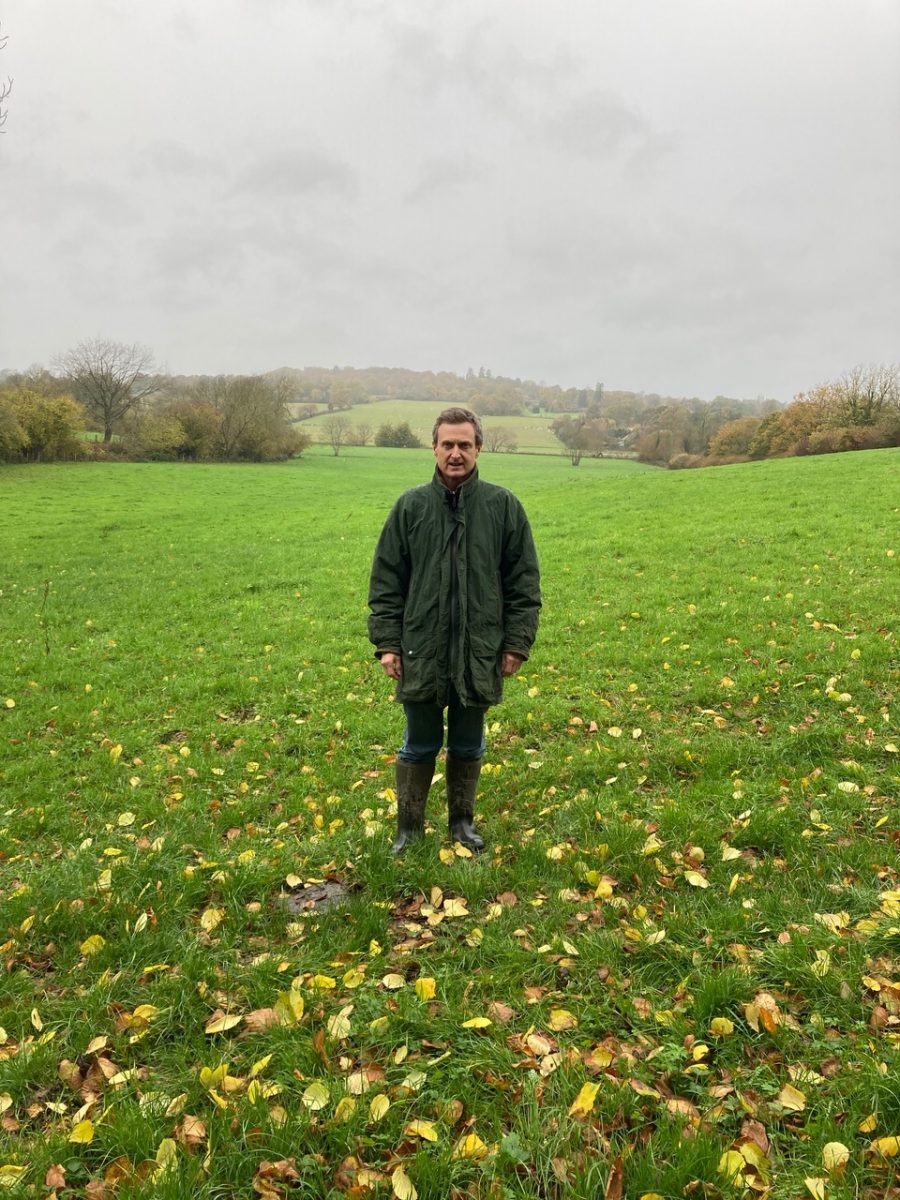
Guy MacNaughton

